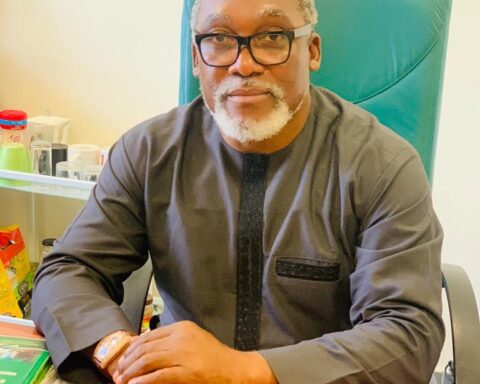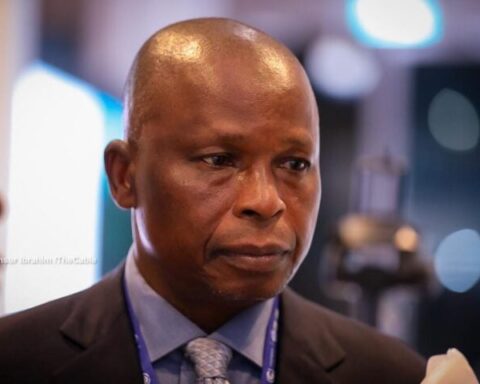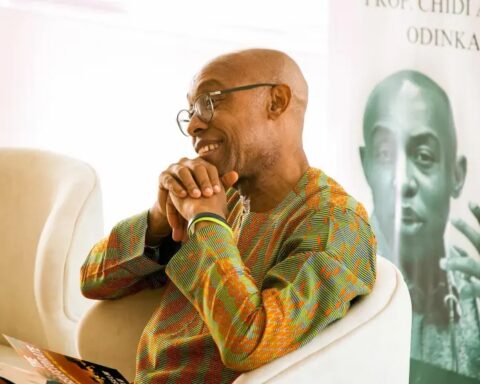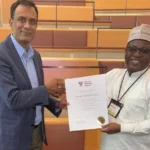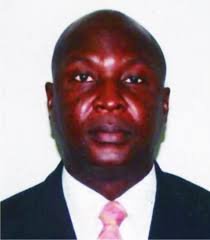
It appears, finally, that technology has lost to man in Nigeria’s electoral process. The struggle has been spirited, over the years.
As many times in the past as there were initiatives to review the laws guiding the electoral system, usually prompted, after general elections, by agitations for a more efficient system, the exercise had ended up as a contention between proponents of more technology in the electoral process and those for less, if not zero-involvement of technology.
Almost always, the latter, adopts disingenuous methods to mask their actual desire, which, devoid of sophistry, simply translates to preference for continuation of the manual system.
For this group, the preferred choice is an electoral system in which technology does not limit human capacity to operate as man will often do, in such circumstances. For them, human expertise, referring euphemistically to ample room to manipulate such exercise, at critical junctures, should be preserved as part of the game. The battle between the two tendencies remains as fierce, till tomorrow.
At a point during the long- drawn legislative negotiations that culminated in the 2020 Electoral Act, for instance, the forces opposed to extending the frontiers of technology in the electoral process, went to the extent of procuring witnesses from around the precincts of the National Communication Commission (NCC) and telecommunications service providers. The brief of the expert testifiers was to argue, as they did, that there were still considerable parts of the country without communication services. Consequently, they argued, there was no need for provision of electronic transmission of results in the electoral law, as many parts will be disenfranchised. Very patriotic fellows. Their preference was for technology to be kept at bay, and for man, that can reach where telecommunication services cannot reach, to continue to service the system, the best he can, the way it has been. Of course, it was nothing more but oblique logic to secure political survival for those who suspected that they stood on uncertain electoral ground.
Interestingly, the leadership of the Independent National Electoral Commission (INEC), since its inception in 1998, has remained consistent in advocating progressive extension of the reach of technology in the electoral process.
The Commission’s helmsmen apparently see in technology deployment, a sure way of insulating themselves from the often-intense pressure that governments and politicians subject the election management to, during elections.
Except for Justice Ephraim Akpata, the founding chairman of the Commission, who spent his relatively short time in office, establishing the structures of the institution, all his successors, till date, have pursued policies of steady increase in deploying technology to advance the quality of the electoral system.
Indeed, during the tenure of Dr. Abel Guobadia, who succeeded Akpata, the Commission initiated a technology plan for election management, hinged on the Electronic Voting System (EVS).
The system consists of; Electronic Register of Voters, Electronic Accreditation of Voters, Electronic Transmission of Results and ultimately, Electronic Voting. INEC affirmed a belief, even way back then, that the future of elections depended on technology.
Subsequently, under Professor Maurice Iwu, the Commission ushered in a regime of robust technology deployment, through the Biometric Voter Registration, that for the first time,made it possible for registered voters to be verified, with their images and biometrics now captured through the Direct Data Capture device, readable from a chip embedded in the voter’s card. This template has guided INEC thereafter.
Under Professor Attahiru Jega, the Election Management Body followed this trajectory and enhanced the voter’s card, creating Permanent Voter’s Card. It also introduced the Smart Card reader, firming up the reliability of verification of voters during elections.
Next followed the extant Commission, headed by Professor Mahmood Yakubu.Life is full of ironies. Anyone who has followed the consistent, but strenuous journey of INEC to have more technology in the electoral process, will have little, or no problem conceding that the agency under Mahmood Yakubu, ranks in the topmost bracket, among various regimes in INEC, in terms of developing and deploying technology to achieve greater reliability and transparency in the electoral process.
The Yakubu-led Commission also battled assiduously, to have electronic transmission of election results inserted in the latest Electoral Act. Although the nay sayers had their way, the Commission developed and introduced the twin election result management tools of Bi-modal Voter Accreditation Device (BVAS) and the INEC Result Verification (IReV) portal.
The two techniques opened a fresh, uplifting possibility for sanity and fidelity of results in Nigeria’s electoral contests.
Many Nigerians, at home and abroad, who had cynically written off elections and prospects of credible election in the country, over the years, were buoyed by the advent of the BVAS and IReV. Alas!
This same Commission is watching itself go down in history as that which subverted technology’s promises in the electoral process.Such a puzzle.
How enthusiastically- acclaimed devices, introduced by INEC, to lift the electoral process, have been rendered inconsequential in elections conducted by the same INEC, will, for long be a burden for the Commission to explain. What could have happened?
The spectre of the BVAS and IReV portal proclaiming one version of results, during the recent Edo State governorship election, while a different version of results was called manually, will haunt the election management body for a very long time.
Man, the very entity that opponents of technology have always rooted for, to take charge during elections, may have triumphed over technology, for now. The victory does not appear elegant,though. This has nothing to do with who was declared winner or loser. It has to do with values and prospects of redemption for a society.
How now, is the genius of the BVAS and IReV to be situated? This must be what the late profound writer, Dr. Ego Alowes-Jimanze referred to as a “stranded genius”. So sad.
In the wake of the Edo State governorship election and its declared outcome, President Goodluck Jonathan, noted that it is now apparent that technology cannot address the problems of Nigeria’s electoral process. The ex-president is at once, wrong and right.
He is wrong, because technology did not fail the election. Indeed, in stubbornly holding up the figures they accredited and the results recorded from the various polling units, the BVAS and IReV portal proclaimed their fidelity and reliability. In other words, they did not fail. They could not, therefore, be faulted. In the general elections of 2023, the devices were abruptly shut up, so they could not talk, one way or the other. Their silence became a loud statement on their inculpability.
In the recent case in Edo State, however, the two devices had opportunity to show their resilience. And they did. The figures in the public domain, from the two devices, spoke for them. They are not supposed to do more than that.
Jonathan was right, on the other hand, because the primacy of man over machine is given. If, man decides to vitiate the efficiency and benefits of technology, what can a machine do?
As Nigeria turns 64 years as a sovereign state today, the reality of a society in which the services and enormous benefits of technology are discountenanced, or even disparaged, for whimsical calculations, speak of the bumpy road ahead.
The governorship election in Edo State, with the glaring subjugation of technology by man; INEC, government et al., has, among others, enlarged the vocabulary of electoral contest in Nigeria. It may now be appropriate to talk of elections “taken” and “given”, as in, the governorship election in Edo state has been taken by the All Progressives Congress. Or, put another way, the election was “given” to Senator Monday Okpebholo.
Of course, technology never gives anything extra to anyone. Man does. What is inputted in such devices as BVAS and IReV portal, is what they declare. Man, on the other hand, can be generous.
That, as the Edo State governorship election has shown, is why those who oppose technology and prefer manual conduct of elections do so. Catch them, if you can.
-
Andy Ezeani is a Nigerian journalist and media consultant.He was trained at the University of Lagos,Nigeria and the University of Maryland,College Park,USA. He is a newspaper columnist and was at various times editor,Daily Champion Newspaper, editor,Sunday Champion,Reporter,The Guardian newspaper, Lagos, Head of Publicity Division,Independent National Electoral Commission and Chief Press Secretary to the Honourable Chairman of the Independent National Electoral Commission, Nigeria.

